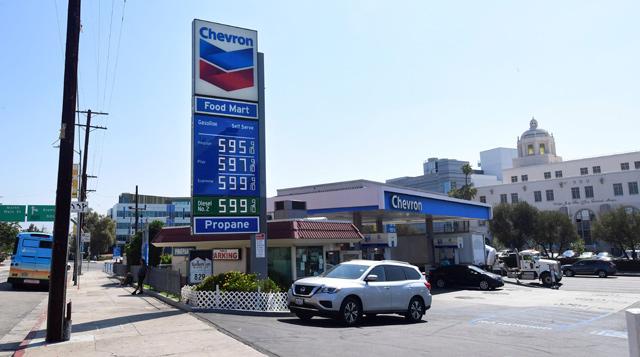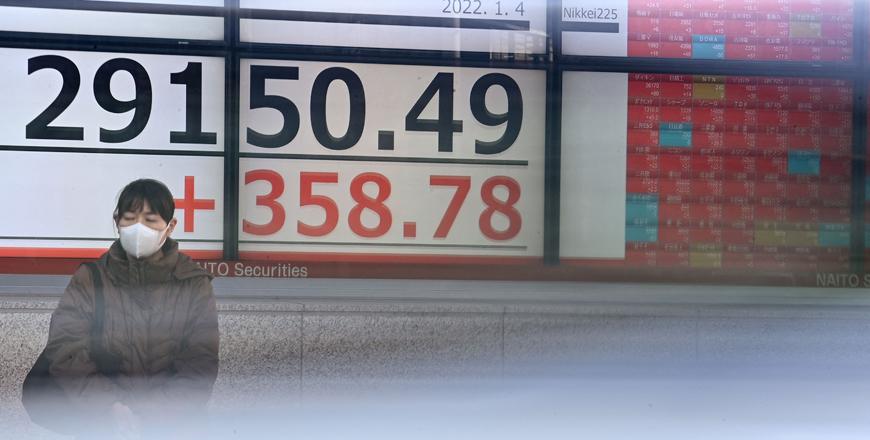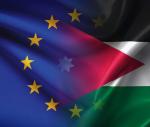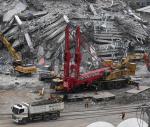You are here
Oil prices hammered after OPEC+ talks fail
By AFP - Jul 07,2021 - Last updated at Jul 07,2021
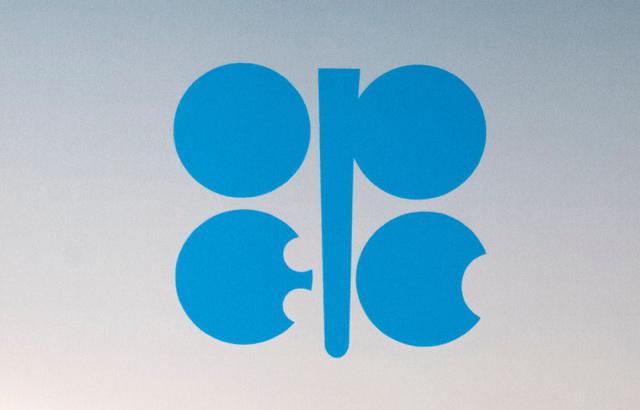
This file photo taken on November 29, 2016, shows the logo of The Organisation of the Petroleum Exporting Countries at the organisation headquarters on the eve of the 171th meeting in Vienna (AFP photo)
LONDON — US oil prices briefly spiked on Tuesday to near a seven-year peak after OPEC+ crude producers failed to agree on lifting output, fuelling concern about inflation.
But the prices then fell sharply as traders mulled the longer-term implications.
Stocks in Europe and the US fell meanwhile, as several factors appear to have lessened investor appetite for risk, an analyst said.
The contract for West Texas Intermediate (WTI) crude for August delivery leapt to $76.98 per barrel, a level last seen in November 2014, before plunging to $73.45 in later trading.
The price of Brent North Sea oil advanced to a November 2018 peak at $77.84 before plummeting to $74.65.
The OPEC+ group on Monday cancelled a meeting that was supposed to overcome an impasse between the United Arab Emirates and other members on how to lift output. No new date has been set.
"It looks like the market is more worried about a potential crisis at the cartel than it likes the lack of fresh supply coming on in the second half" of the year, Markets.com analyst Neil Wilson remarked.
Deadlock
Oil producing nations have slowly lifted output in recent months after turning the taps down last year in response to a collapse in prices caused by coronavirus lockdowns.
With demand rocketing on the back of the global rebound — and the US holiday driving season under way — officials had planned to hike output each month by 400,000 barrels a day from August to December.
If no new supplies are forthcoming, the price of oil could hit $80 a barrel or more, some traders say, but if OPEC plunged into crisis, producers might just pump as much crude as they could to take advantage of current price levels.
"Traders seem concerned that the speculative positioning could be unwound in the coming days if the OPEC+ deal were to start to unravel, ultimately leading to more crude and a less stable oil market," Wilson said.
Meanwhile, European equity markets dipped after a mixed Asian session, and in New York, the Dow Jones index rose at first as traders came back from the Independence Day weekend, but then fell back on downbeat data from the service sector.
Hong Kong's tech firms remained in focus owing to fears that a new crackdown on the sector by Chinese authorities will make them unattractive to investors.
"Risk appetite is fleeing as investors return from the long holiday weekend with some jittery headlines on more crackdowns from Beijing, nervousness about the goldilocks period for stocks, and expected further hawkish notes" from a US Federal Reserve (Fed) meeting to be released on Wednesday, commented Edward Moya, a senior analyst at OANDA.
The release of minutes from the Fed's June meeting should provide clues about its monetary policy outlook.
The spike in oil prices has reignited fears about strong inflation, which could force central banks to hike interest rates earlier than thought — and potentially derail the post-COVID recovery.
"Surging oil prices are not good news for the global economic recovery," OANDA analyst Sophie Griffiths said.
Related Articles
LONDON — World oil prices surged on Tuesday to new multi-year peaks, extending a bullish run one day after OPEC+ refrained from boosting out
LONDON — Stock markets rallied on Tuesday to fresh record highs as investors bet on reduced economic fallout from the Omicron variant, while
LONDON — Top oil-producing countries led by Saudi Arabia and Russia announced another modest increase in output on Wednesday.The step comes



